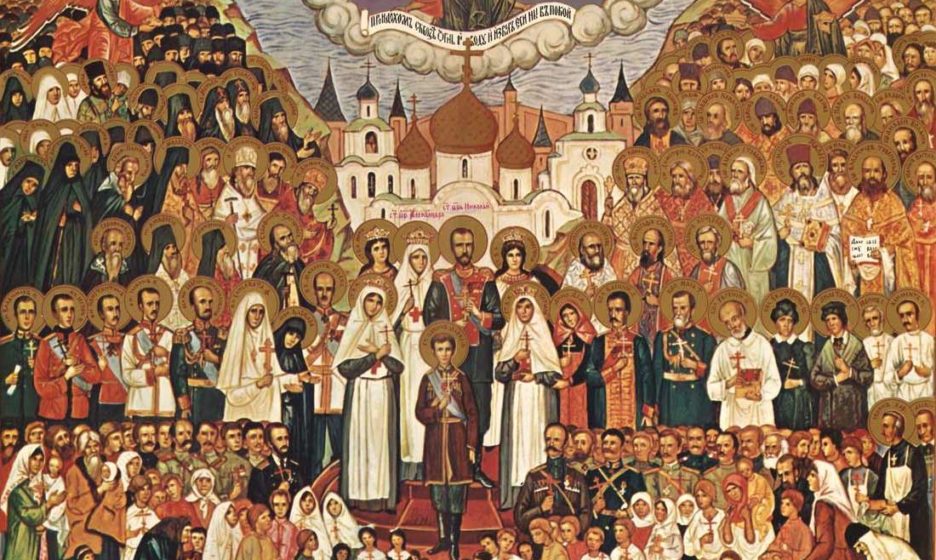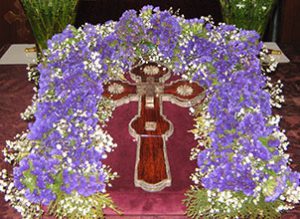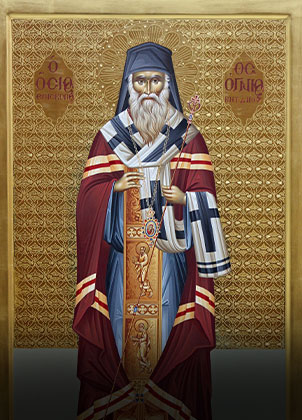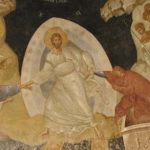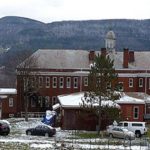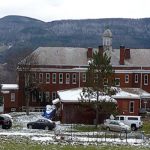THE NEW MARTYRS
From the first days of the Bolshevik revolution in Russia, communists started persecution against the Church, tortures and executions of the clergy and faithful. In 1932 communists in Russia launched a campaign of a total, physical liquidation of the Church in Russia (so-called “Godless Five-Year Plan”) Their plan was that in the course of 5 years, by 1937, religion would have been completely eradicated.

This is what was written by the witness, who later was able to escape from Soviet Russia:
“In 1930-ties I travelled through the whole of Siberia on a scientific expedition and in 1933 our travels took us to Irkutsk, Balagansk and Kachug. The road from Kachug to Balagansk was completely in taiga; there were no inhabitants, and only prisoners worked on the construction. In the concentration camps around Kachug at that time there reigned an unheard of tyranny. For no reason people were shot, beaten, flogged. If any one of the prisoners did not fulfil his daily assignment, the camp guards had the right to do what they wanted with him. Living conditions were terrible, people were dying of hunger and cold.
In July, 1933, our exploration party stopped for several days not far from a concentration camp. The weather had become quite pleasant. After dinner we sat until late at night by the bonfire. We often heard some kind of cries, which echoed through the taiga. We didn’t know yet what kind of cries they were. It was a clear, quiet night; the fresh Siberian air was giving off a fragrant aroma of taiga flowers along the valley. And as long as I live I will never forget this valley, I will remember it always!
Our sweet morning sleep was interrupted by a kind of mournful human moan. We all got up quickly. The head of our party, a native of Irkutsk, quickly took up a pair of binoculars, others set up two levelling-instruments, and we began to observe a crowd moving in our direction; because of the undergrowth it was difficult to understand what was going on.

They were prisoners, about sixty, and as they got closer we could see clearly that they were all wasted from starvation and overwork. What did we see? Each of them had a rope on their shoulders. They were dragging a sleigh – a sleigh in the month of July! And on the sleigh, a big barrel with human excrement.
The guards who accompanied them apparently didn’t know that there was a scientific expedition on the territory of the concentration camp. We heard the precise words of the guards’ command: “Lie down and don’t move”. One of the guards ran back to the camp; apparently they considered us suspicious. One of our party somehow quickly determined the situation of the prisoners and said: “We have prolonged their lives for a few minutes.”
At first we didn’t understand these words. In perhaps 15 or 20 minutes we were surrounded by a group of camp guards, who approached holding rifles battle-ready, as if they were about to attack with bayonets. Their commander came up to us and asked for our documents. After verifying the documents he explained to us that these sixty men had been sentenced to be shot as an element foreign to the Soviet power. Already a ditch had been prepared for these sixty. The commander asked us to go into our tents, which we did.

The sixty martyrs were priests. In the quiet July morning the weak voices of many of the priests were clearly audible. One of the executioners asked the priests standing by the ditch, one by one: “You are taking your last breath; tell us, is there a God or not?” The reply of the holy martyrs was firm and confident: “Yes, there is God!” The first shot rang out. Sitting in our tents, our hearts pounded… A second shot rang out, a third, and more. The priests were led up, one by one, to the ditch; the executioners standing by the ditch asked each priests – Is there a God? The answer was the same: Yes, there is God!”
…………………………….
The New-martyrs: bishops, priests and laymen, were ordinary people. Or more correctly, they seemed ordinary to those around them, but in reality they were different. They kept in their soul a treasure, which was revealed in the time of great trials. When many around them fell away from God, the New-martyrs shone forth with their faith, perseverance and greatness of spirit. They were men, women and children, similar to us; they were not sinless, and had human weaknesses. But unlike us, faith in God was not something secondary to them; faith was the contents of their entire life.
Our Lord Jesus Christ says: “For where your treasure is, there your heart will be also” (Math. 6). For the New-martyrs faith in God was their treasure, and for its sake they were ready to renounce not only their possessions and social status, but even their life.
The Lord says: “Whoever confesses Me before men, him the Son of Man also will confess before the angels of God. But he who denies Me before men will be denied before the angels of God.”
The word “martyr” means ‘witness’ in Greek; the holy martyrs by their death witnessed that there is God. But all Christians are called to witness about God both by words and deeds. We often have to confess our faith before men, though we don’t need to brave torture and death, but only unfriendly looks and ridicule.
Let us not forget how the New-martyrs before death confessed their faith in God. Let their example be before us when we also should confess our faith. Amen

